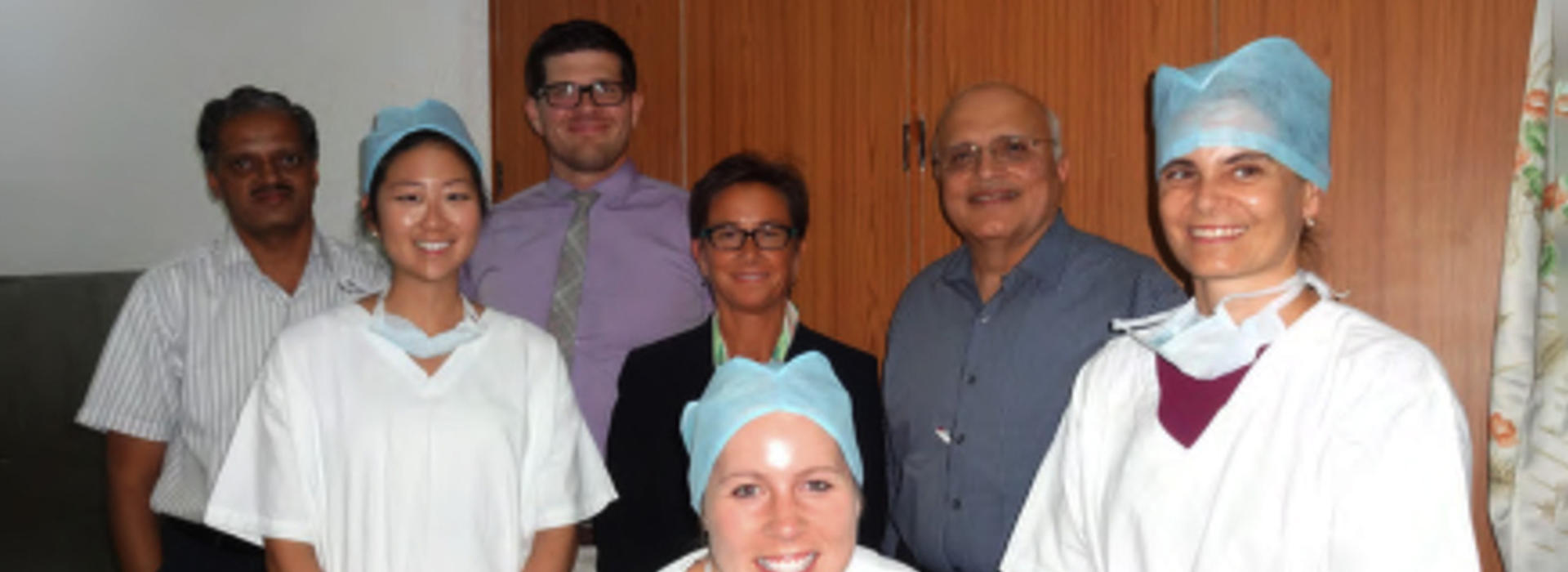
First Geriatric Center in India Inaugurated at U of M Partner Institution
The first geriatric center in India, located in Bangalore, has been recently inaugurated at the St. John’s National Academy of Health Sciences, a University of Minnesota Medical School partner institution. As part of a master agreement, this center will serve as an additional resource for students and faculty to use for exchange programs, education and research.
Having noticed that there are no facilities to take care of the aging population, Kumar Belani, MD, professor in the Department of Anesthesiology and immediate past president of Friends of St. John’s Medical College Inc., coordinated the efforts of alumni of St. John’s in the United States to raise funds and plan this center in collaboration with the faculty at St. John’s Medical College and members of the American Association of Physicians of Indian Origin (AAPI). The center looks to provide expert care catered to the special needs of the elderly and has 65 beds to serve as a one-of-a-kind model in geriatrics for both India and the U.S.
Dr. Belani, who completed his residency at the U of M Medical School in 1978, earned his medical degree from St. John’s Medical College. He said, “This is a huge deal for the U of M Medical School to be connected to something like this, because this type of opportunity isn’t available to any other institution in the U.S. It will give our students a chance to interact and build relationships with other trainees, in addition to getting the unique, clinical experience they want.”
The partnership between the U of M Medical School and St. John’s Medical College comes courtesy of the directors at the Global Medical Education and Research (GMER) Program, who included India as a rotation spot for medical students. Over the last 15 years, St. John’s Medical College has received countless U of M medical students and sent over six students of its own annually. Along with the Medical School, the School of Public Health and School of Nursing at the U of M have conducted joint workshops and programs at St. John’s.
“The students that go there see medical illnesses and health issues that they would’ve never known about otherwise,” Dr. Belani said. “They see diseases that they’ve only read about in textbooks and come back with a completely different knowledge base than they had before.”
Medical students in the past have worked on projects that have culminated in real-life impact. A previous resident in medicine found that the time taken to reach the hospital using an ambulance in Bangalore adversely affected victims of acute heart attacks due to traffic delays, which has resulted in treatment capabilities being made available in-ambulance to overcome the issue.
The center itself is aimed at educating local physicians on the common needs of the elderly through cultural methods of communication and learning. “Seeing how this concept can be established and made functional, even at a village level, is something of interest for our students because it doesn’t exist in the United States,” Dr. Belani said.
In addition to the support of AAPI, Dr. Belani said critical collaboration with the Friends of St. John's Medical College Inc (FOSJ) alumni association and the Catholic Bishops Congregation of India (CBCI) helped make the center come to fruition. St. John’s, being a missionary hospital, treats patients at a nominal cost and provides medical care to the poor, which has led to crucial support from the CBCI that donated land for the center to be built on.
“The vision of the leadership at the Medical School in supporting this relationship and encouraging us to pursue this opportunity, above all, was the key to making this happen,” Dr. Belani said.